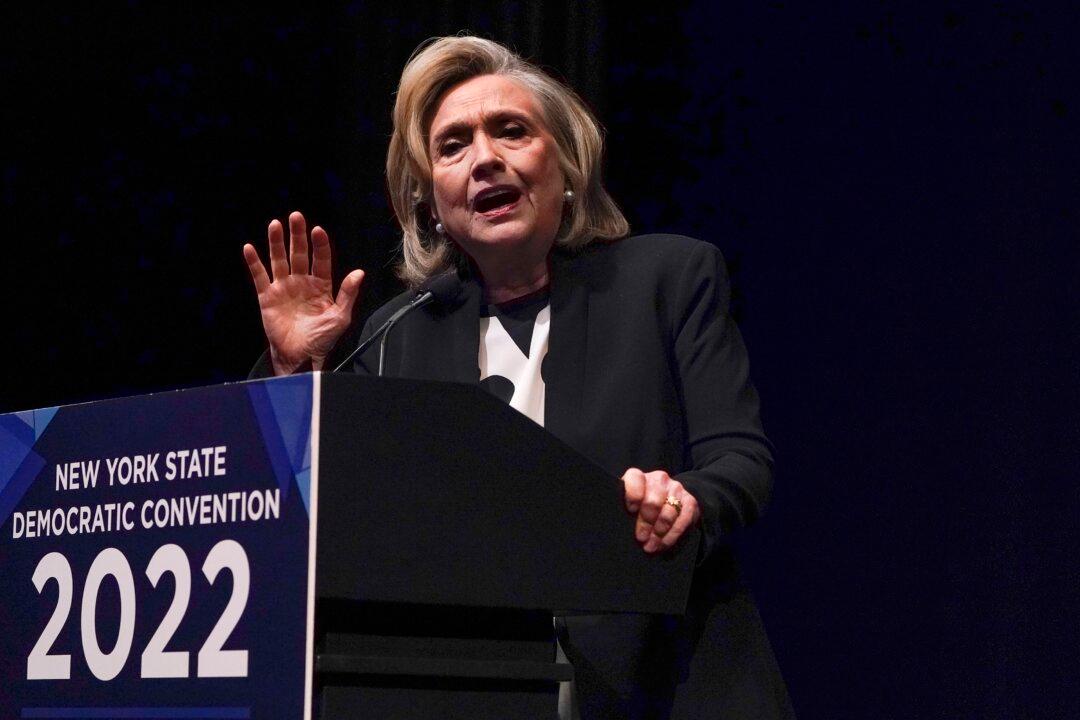Hillary Clinton’s presidential campaign is moving to intervene in a case brought by special counsel John Durham against Michael Sussmann, a lawyer who represented the campaign when he brought information to the FBI alleging a link between Donald Trump and Russia in 2016.
At the time, Clinton was the Democratic presidential nominee and Trump was the Republican nominee; Trump went on to win the election.





